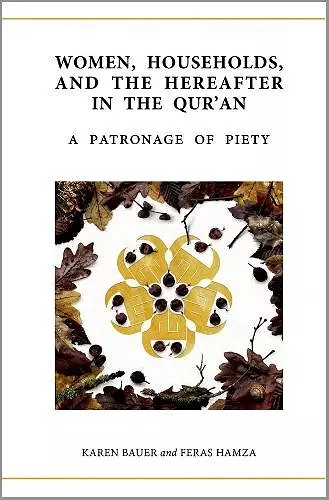Women, Households, and the Hereafter in the Qur'an
A Patronage of Piety
Dr Feras Hamza author Dr Karen Bauer author
Format:Hardback
Publisher:Oxford University Press
Published:21st Dec '23
Should be back in stock very soon

It is commonly understood that the Qur'an sought to transform social and religious practices in its seventh-century Arabian milieu. Yet the nature of that transformation is debated, especially as it relates to women, warfare, kinship and community. This book offers a fresh perspective by undertaking the first historical-critical study of all the Qur'an's verses on women, who were integral to this transformation, and by offering an initial overview of households and patronage — late antique social structures that took the place of formal state structures in the Qur'an's tribal milieu. The findings of this study call into question common approaches to Qur'anic theology, law, and narratives, to the nature of the early community, and to women's place in that community. Bauer and Hamza adopt a holistic method, which integrates aspects of the Qur'an that are commonly considered separately, showing, for instance, how stories act as precursors to law, with female characters acting as models for all believers. Concurrently, they highlight the Qur'an's egalitarian approach to moral agency in existing hierarchical social structures, which the Qur'an seeks to transform both by imposing a salvific frame on them, and by fashioning a community of households characterised by morality, decorum, and care of the vulnerable. This compelling and original work proposes new paradigms for understanding the Qur'an's social milieu and its salvific vision for that world.
An essential contribution! Karen Bauer and Feras Hamza's judicious and thorough study engages longstanding and pressing questions about the coexistence in the Qur'an of gender hierarchy with moral-spiritual equality. They show that its treatment of women and households must be understood within its salvific message - and that women and households are key to its vision of individual and communal salvation. * Kecia Ali, Boston University *
Bauer and Hamza's magisterial study shows how the extensive amount of Qur'anic data on women makes compelling and coherent sense when viewed from an innovative vantage point: the importance of households in the Qur'an's late antique Arabian milieu. Women, Households, and the Hereafter in the Qur'an brims with fresh and exciting insights into how the Qur'an ties together the social and the soteriological and how it negotiates the tension between this-worldly hierarchies and an egalitarian eschatological piety. This monograph constitutes a major advance in the scholarly understanding of the Qur'anic world-view. * Nicolai Sinai, Oxford University *
A refreshingly original contribution. The authors focus on the Qur'an's deeply egalitarian moral message, a radical idea in the late antique Arabian social setting of households and patronage structures. For the field of gender studies, the authors offer a consistently innovative reading of the Qur'an. The sacred text's treatment of women serves to designate the emerging Muslim community as a moral community: how can women who are vulnerable in a patriarchal patronage society become moral exemplars? The response offered is a profound revision of the traditional scholarly understanding. * Roberto Tottoli, University of Naples *
Bauer and Hamza's arguments have contributed value to the overall discussion, and with impressive scope. I recommend this book to those interested in women in Islamic history and theology. * Samuel McKee, Reading Religion *
ISBN: 9780198897279
Dimensions: 225mm x 145mm x 38mm
Weight: 676g
464 pages